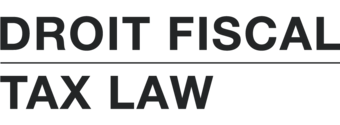
Photo by Scott Graham on Unsplash
The taxpayer was a successful businessman. He was the sole shareholder of a holding corporation which in turn owned a majority stake in another corporation carrying on a logging business (BBH Ltd.). The taxpayer was assessed shareholder benefits because BBH Ltd. (of which he was also a direct shareholder) paid premiums in respect of insurance policies that insured his life and that of his spouse and for which the beneficiaries were his spouse and stepchildren. Specifically, the CRA included in the taxpayer’s income $152,116.41 (which the Crown later agreed to reduce to $106,703.26), $228,925.09 and $140,973.01 for the 2013, 2014 and 2015 taxation years, respectively.
To support his position, the taxpayer stated that “his stepdaughter [who was] a licensed insurance broker, was responsible for his insurance portfolio and made various changes to the beneficiary designations without his knowledge. The [taxpayer] asserted that he did not know that there was a policy insuring the life of his spouse nor did he know that his spouse or his stepchildren were beneficiaries of any of the policies.”[1] Due to his lack of knowledge, the taxpayer argued that the corporation did not “confer” a benefit upon him. Thus, according to the taxpayer, what happened was merely an accounting entry mistake “facilitated” by his trust in his stepdaughter.
Generally, a corporation has to use the traditional route of declaring a dividend in order to flow money to its shareholders. When instead of doing that the corporation provides “benefits” (broadly interpreted) to a shareholder, those benefits are taxable. Whether the taxpayer was aware that the corporation conferred benefits upon him is not determinative as “a benefit may be conferred without intent or actual knowledge on the part of the shareholder and […] it is open to the Court to conclude that the circumstances are such that the shareholder ought to have known.”[2] Therefore, whether the taxpayer knew or not, he ought to have known, especially in light of the significant amounts of the life insurance premiums. Other factors also weighted in the Court’s judgment, including the fact that the taxpayer did not call his stepdaughter (the licensed insurance broker) to testify. The taxpayer’s appeal was dismissed with costs.
[1] Para. 8.
[2] Para. 20.
